You are here
Project One Films
A rite of passage at the UCLA School of Theater, Film and Television for nearly 50 years, Project One films were undertaken by aspiring filmmakers before most of them ever set foot in a production class. Armed with an 8-millimeter semi-automatic camera, the students were expected to write, direct and edit a motion picture with sound during their first academic quarter. This full immersion into the project-based system -- where they would also eventually make a Project Two and a Project Three (today’s UCLA MFA students also make a Project Four) -- was designed to emphasize creativity over mastering complex filmmaking tools. That would come later, but only after the completion of this first film.
The students edited their projects on customized equipment allowing them to cut picture and sound synchronously. They often spent long nights and weekends working, virtually camped out in Melnitz Hall. At the end of each quarter, the completed films were screened and critiqued in a campus theater before an audience packed with faculty, fellow students, family and friends. These sessions were frequently spirited, and sometimes contentious, but set the young filmmakers on their way as cinematic artists.
The UCLA Film & Television Archive is pleased to be able to make these Project One films available to the public as part of its ongoing “L.A. Rebellion” initiative.
| Title | Year | |
|---|---|---|
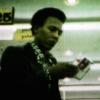 |
A Day in the Life of Willie Faust, or Death on the Installment Plan Jamaa Fanaka’s first project is an adaption of Goethe’s Faust, superimposed over a remake of Super Fly. A morality tale in two reels. |
1972 |
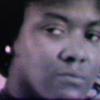 |
Daydream Therapy Bernard Nicolas' Daydream Therapy,set to Nina Simone’s haunting rendition of “Pirate Jenny” poetically envisions a hotel worker’s escape from workplace indignities through vivid fantasy. |
1977 |
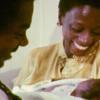 |
Hidden Memories Jacqueline Frazier’s first film confronts the issue of teenage pregnancy, remaining extremely ambiguous about all choices for young women, whether celibacy or sexual activity, abortions or marriage. |
1977 |
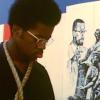 |
Hour Glass A young African-American man rethinks his role as a basketball player for the white establishment as he reads the works of Third World theoreticians, such as Franz Fanon, in Haile Gerima’s “Project One” film. |
1971 |
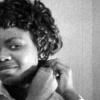 |
The Kitchen Filmmaker Alile Sharon Larkin visualizes a mental ward as a possible equivalent to prison incarceration for women of color. |
1975 |
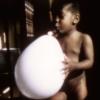 |
Medea Made as Ben Caldwell’s first project at UCLA, Medea is a collage film that explores the information that permeates into a child before it is born. |
1973 |
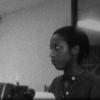 |
Rain (Nyesha) The political awakening of a female typist is vividly portrayed through Melvonna Ballenger’s use of John Coltrane’s song, “After the Rain.” |
1978 |
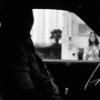 |
69 Pickup Filmmaker Thomas Penick explores race, gender and violence in this provocative, disturbing drama set on a hot, summer day in 1969. When a woman accepts a ride from two men at the corner of Western and Adams, the encounter quickly turns ugly, venturing into painful, surreal territory. |
1969 |
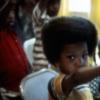 |
Ujamii Uhuru Schule Community Freedom School Don Amis’ documentary chronicles the day-in-the-life of an Afrocentric primary school located in South Los Angeles. Learn, baby, learn. |
1974 |
To report problems, broken links, or comment on the website, please contact support
Copyright © 2025 UCLA Film & Television Archive. All Rights Reserved






 Mobile Navigation
Mobile Navigation

